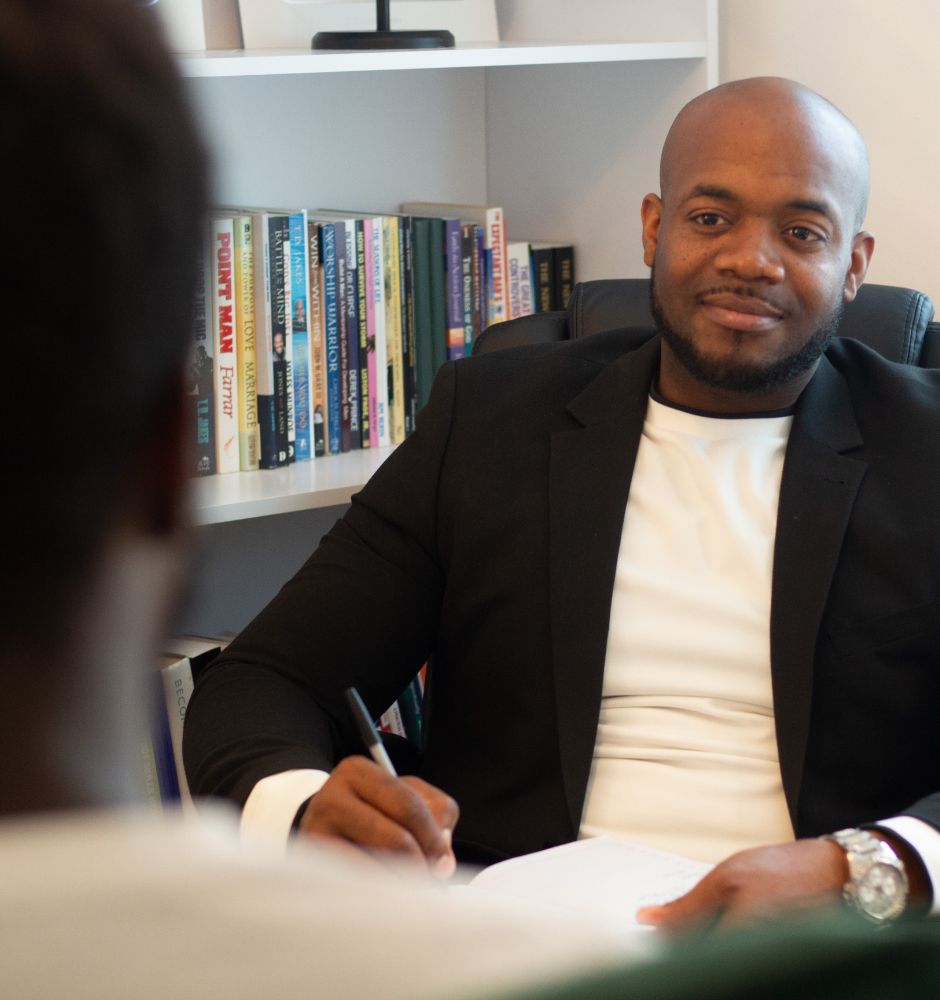CBT is commonly used to treat a wide range of disorders, including phobias, addictions, depression, and anxiety. CBT has a good evidence base for a wide range of mental health problems in adults, children and young people. This research has been carefully reviewed by the National Institute for Health and Clinical Excellence (NICE), who provide independent, evidence-based guidance for the NHS on the most effective ways to treat disease and ill health. CBT can be used if you are on medication that has been prescribed by your GP. You can also use CBT on its own. This will depend on the challenge that you want help with.

The number of sessions you need depends on the challenge you need help with, but typically between 12 to 20 sessions of 50-60 minutes are required. If your challenge is more complex, more sessions may be needed. I will help you to notice any patterns in thinking or behaviours that might be contributing to on-going issues and teach you different CBT techniques that could help you.
We will discuss your specific difficulties and set goals for you to achieve. CBT is not a quick fix – it involves hard work during and between sessions, e.g., keeping track of what you are thinking, feeling and doing, or trying out new ways of thinking or behaving. At the end of your sessions, we will develop a ‘Staying on Track’ plan – a plan that outlines and brings together everything we have covered over the sessions. We will set future goals and I will advise you on how to continue using CBT techniques in your daily life after your treatment ends.
By identifying and understanding your unique thought patterns and behaviours, we will lay the foundation for effective and personalised interventions.
Defining clear and achievable goals through collaborative work enables development of a roadmap for progress, fostering motivation to guide you towards positive and sustainable change.
Using a systematic and evidence-based approach, we will create a comprehensive formulation that uncovers the underlying factors contributing to your challenges.
I am able to break down my main goal into smaller achievable goals so I am not overwhelmed. It has made me aware of unhelpful thinking habits and how to change them.
CBT is a structured, time-limited therapy. Sessions are usually held weekly and last about 50-60 minutes. An agenda at the start of each session will be used as a guide to ensure you are getting the most out of your time, and you will be required to bring your own agenda points. In each session I will support you to understand what aspects are maintaining the problem that you are experiencing. I will also guide you to understand how your thoughts, behaviours, feelings and physical sensations all connect. Through CBT I will help you understand that if you can change one thing you can change everything.

Therapy will challenge you to test your negative predictions through experiments and to gain new perspectives. I will also support you to learn practical tools to manage the mental health challenge you might be experiencing. However, collaboration is essential to get the most out of therapy. To collaborate we must be honest about how we are both finding the therapy and talk about the challenges.
CBT is about hard work, there is no magic cure. In each session we will do practical tasks together, and you will be given tasks to continue between sessions. The important thing to note is that the bulk of therapy will be dependent on what you do between sessions. This is usually reviewed in the next session and the learning outcomes are identified.
This is possibly the most asked question about CBT.
CBT is not a “one size fits all” therapy, so the number of sessions will vary from person to person. The NICE guidelines recommend 12-15 sessions for anxiety disorders such as Generalised Anxiety Disorders, and 12-20 sessions for depression. Some patients benefit from six sessions while others need over 20 sessions to see progress.
Following the assessment and goal-setting exercises I will be able to gain a better understanding of your challenges.
We also assess your progress weekly and can decide how many more sessions you may need.
CBT is not the only talking therapy available. There are other forms of therapy such as Psychoanalysis, which is a long-term therapy and can last for years. CBT is a short-term therapy that is goal focused, offers practical tips and requires continued application between sessions by engaging in homework.
CBT is considered a here-and-now treatment. One of the main principles of CBT is that we can’t change the past but we can change how we think and behave in the present moment.
Your therapist will explore the challenges that are affecting your mental health in the present moment and help you to learn strategies that can support you to to reclaim your life. The sessions do not go into depth about the past but explore it briefly to see how it is affecting you now.
CBT is considered to be a very active therapy when compared to other psychotherapies and counselling. CBT is all about collaboration from start to finish. The aim of CBT is to support you to become your own therapist. It is usually more structured than other forms of therapy and you are expected to do tasks between each session.